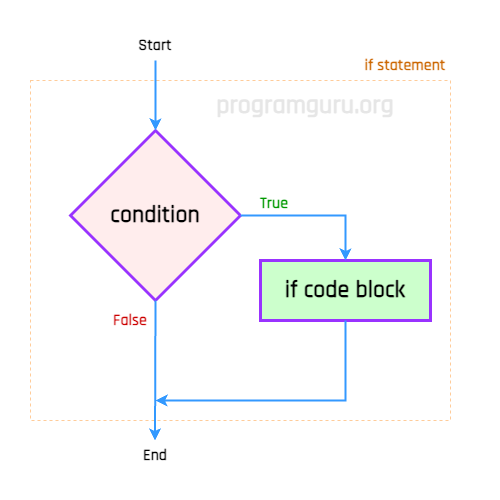In this tutorial, we will learn about if statements in C#. We will cover the basics of conditional execution using if statements.
An if statement is a conditional statement that executes a block of code if a specified condition is true.
The syntax for the if statement in C# is:
if (condition) {
// Code block to execute if condition is true
}The if statement evaluates the specified condition. If the condition is true, the code block inside the if statement is executed; otherwise, it is skipped.
The following is the flowchart of how execution flows from start to the end of an if statement.

num.num.num is even.num is even or not.using System;
class Program {
static void Main() {
int num = 10;
if (num % 2 == 0) {
Console.WriteLine("{0} is even.", num);
}
}
}10 is even.
str.str.str starts with a specific value.using System;
class Program {
static void Main() {
string str = "Hello, world!";
if (str.StartsWith("Hello")) {
Console.WriteLine("String starts with 'Hello'.");
}
}
}String starts with 'Hello'.
num.num.num is positive.num is positive or not.using System;
class Program {
static void Main() {
int num = -5;
if (num > 0) {
Console.WriteLine("{0} is positive.", num);
}
}
}